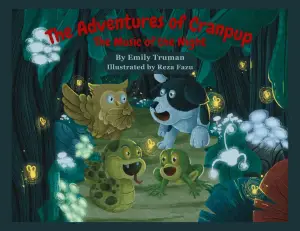Exploring Existential Machines: A Dive into Motherless Creations
It’s not every day a book invokes both scholarly curiosity and existential contemplation, but that’s precisely what Motherless Creations: Fictions of Artificial Life, 1650-1890 by Sarah Wadsworth achieves. As I delved into this intriguing study, I found myself first mesmerized by the concept of life created without maternal influence—and then challenged to reconsider the very fabric of existence, identity, and humanity.
Wadsworth’s exploration of motherless characters in literature is both illuminating and provocative. She deftly examines figures such as Frankenstein’s creature, Pygmalion’s statue, and various automata through the lenses of class, gender, and the era’s pseudoscientific beliefs about life’s creation. Her thesis highlights how these creations serve as allegories for broader themes—machines and beings born from humanity’s desire to control reproduction and, ultimately, perfection. The tension between the desire for agency over life and the implications such creations bear is palpable throughout the text.
What struck me most was Wadsworth’s intricate connections between literature and the societal views toward motherhood and creation. Characters often emerge as reflections of gender dynamics, especially when female figures function mainly as sexual companions, while their male counterparts often embody subjugation and servitude. The narrative threads woven by Wadsworth make one ponder how literature can influence cultural perceptions about rights, agency, and what constitutes "humanity."
The writing style is both engaging and academic, striking a delicate balance that invites readers from various backgrounds to venture into this niche area of literary criticism. Wadsworth’s great strength lies in her ability to translate complex ideas into accessible dialogue. Her thoughtful pacing allows the themes to develop organically—giving readers time to ponder as they progress through the pages.
One of the most memorable quotes I encountered—a reflection on the nature of agency—left a lasting impact: “In the absence of a mother, can creation exist in freedom, or is it inherently enslaved?” This poignant line encapsulates the overarching inquiry of the text, inviting readers to reflect on what it means to create and the responsibilities bound within that act.
In the end, Motherless Creations isn’t just for literature enthusiasts; it’s a must-read for anyone intrigued by the intersections of technology, identity, and the human condition. Whether you’re an academic with a penchant for speculative fiction or a curious reader looking to engage with issues of gender and technological narrative, Wadsworth’s work offers a compelling doorway into a world where the very essence of life is questioned. Personally, this exploration has lingered in my mind long after closing the book—a reminder of the complexities that lie at the heart of both fiction and our reality.
If you’re on the lookout for something that will challenge your perceptions and ignite your imagination, I wholeheartedly recommend diving into Motherless Creations. It’s a unique journey well worth the traverse—just be prepared to question the very notions of life and agency along the way!




